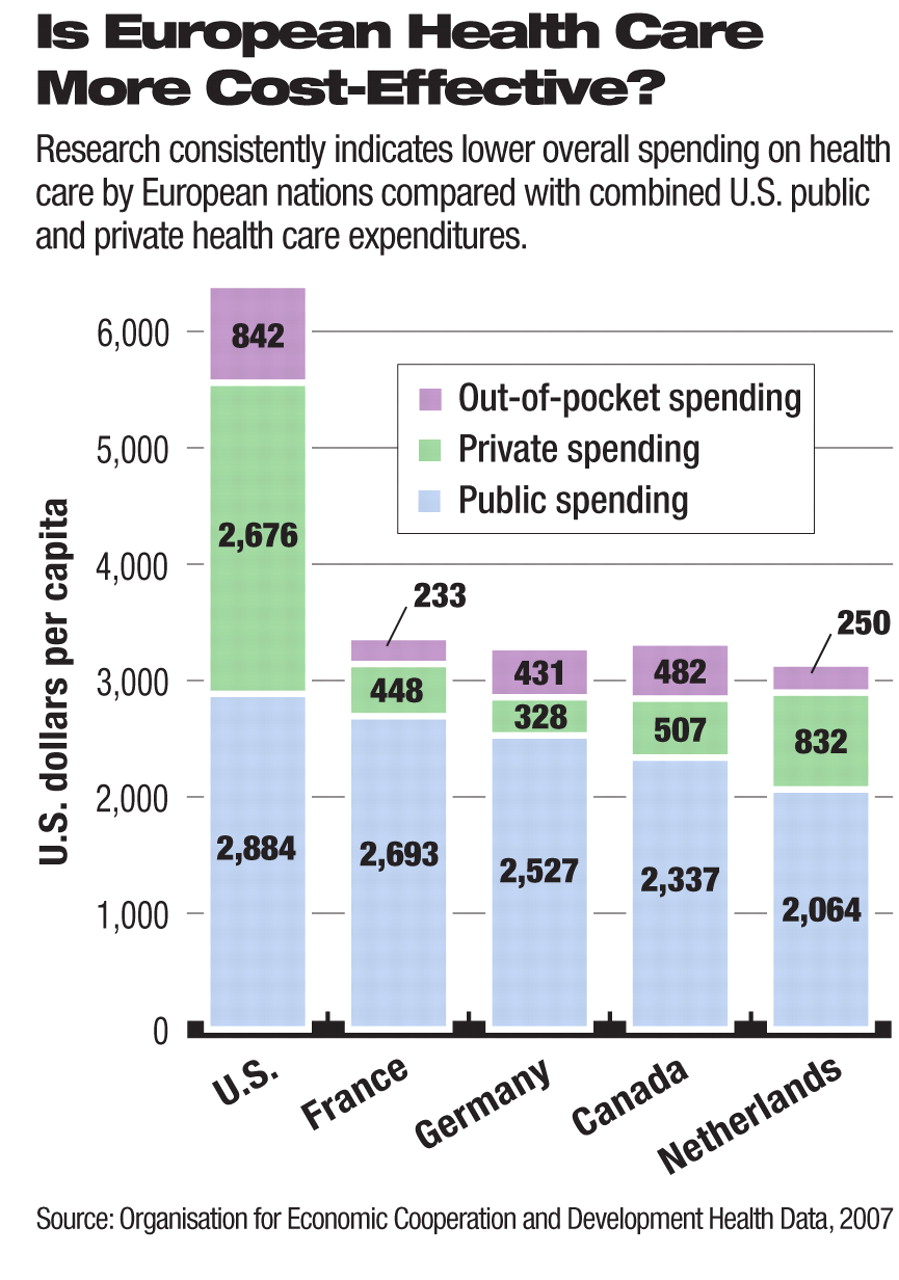In the midst of a presidential election in which competing health care reform plans have brought widespread attention to disparities in health care access in the United States, health care policy experts discussed two European systems that could serve as models for reform in this country.
The national approaches of the Netherlands and Germany to health care financing have many differences from and some similarities to the more fragmented U.S. approach. Among the chief differences—and possible lynchpins for a future U.S. system—is the requirement in both European countries for mandatory individual health insurance through affordable and widely available plans.
“I think there are some really important lessons to be learned from these countries in terms of the individual mandates in making payments affordable to individuals by, if not having contributions proportional to income, then at least having bigger subsidies for lower-income people,” said Patricia Danzon, chair of the Health Care Systems Department at the Wharton School of the University of Pennsylvania.
Her comments and those of other U.S. and European health care experts came during an April roundtable discussion before congressional staffers on possible European models for a U.S. health care financing overhaul. The discussion came not only in the context of competing presidential candidates' health care plans but also amid an increasing amount of research data showing that the U.S. system spends much more money for lesser amounts of overall care than do those of other industrialized nations.
Recent research has found that U.S. health care spending—about 16 percent of gross domestic product, and growing—is significantly higher than that of every major European nation. However, the U.S. ranks lowest on a variety of health-outcome categories, including deaths that could be avoided through available interventions, according to the 2006 Commonwealth Fund National Scorecard on U.S. Health System Performance.
As a key feature that the European systems share, mandated health insurance remains a controversial proposal for many Americans. Additionally, it is very hard to implement on a state basis because the use of state tax exemptions and fines to enforce it—as Massachusetts uses to enforce its individual mandate—are seen as relatively weak compared with enforcement under the federal tax code.
The Dutch system provides legal sanctions to force enrollment and then deducts the cost of the premiums from government payments scofflaws would have received. The German approach also is technically an individual mandate, but because employers pay the premium, all sanctions for lack of payment are aimed at them.
Federal Approach Advocated
The barriers to state-level enforcement of individual insurance mandates argue for a federal health care approach in the United States, Danzon said. Such a national system could use the Internal Revenue Service to enforce it.
National mandatory individual insurance “would be easier to do, and having an individual mandate immediately solves some of the problems of insurance markets, because once everybody has to buy insurance, the risks of adverse selection that individual insurers face are somewhat reduced,” she said. “It is not just the sick people who are out looking for coverage.”
The possibility of an individual insurance mandate drew criticism, however, from Stewart Butler, vice president of domestic and economic policy studies at the Heritage Foundation, a conservative think tank. He noted that Americans are much more resistant to mandated insurance than are Europeans. In Switzerland, for example, there is near-universal adherence to the auto insurance requirement, while fewer then 80 percent of American drivers have it. Americans also have much higher demands for privacy from the government and from each other than do their European counterparts.
“The idea that people can find out what insurance you have and share it with the government and then come and knock on your door if you haven't signed up is something that all Americans” would be concerned about, Butler stated.
Another obstacle to a mandatory insurance system, Butler maintained, is that a national approach would eliminate a potential advantage of the U.S. federal system, which can allow for states to experiment with various funding approaches to find the best ones, he said.
Industry Opposition Key Factor
Likely to be less controversial with most Americans, said Butler, are the Europeans' use of a variety of mechanisms to mandate that insurers provide affordable insurance plans to all citizens, regardless of preexisting conditions. However, those provisions draw fire from U.S. insurers, who maintain that this strategy would undermine the entire insurance market.
A possible way to address insurers' concerns are found in the Dutch system, which pays insurers for accepting sicker patients while requiring that they pay the government for every healthy person they cover.
“It is not a free market,” said Wynand van de Ven, a professor of health insurance at Erasmus University in Rotterdam, of the Dutch system.“ The government manages the market to achieve socially desired outcomes, and this requires that many preconditions have to be fulfilled.”
More information about health financing system comparisons is posted at<www.allhealth.org/briefing_detail.asp?bi=126>.▪

